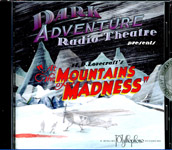

Little Fuzzy
by H. Beam Piper
Source:Internet Archive |17 zipped MP3s|
Length: 6 hr, 45 min [UNABRIDGED]
Reader: Maria Lectrix
The book: Jack Halloway, a lone gem miner on the corporate-owned planet Zarathrusta, discovers a small furry alien hiding in his mining shack. The alien, whom he names “Little Fuzzy”, is friendly, and although primitive, appears to be intelligent. When word gets out about Little Fuzzy, it means bad news for capitalist Victor Grego. Grego runs the entire planet under a Terran Federation policy that allows the Zarathrusta Corporation to operate with little interference, but only if the planet is not home to a sentient life form. If the Fuzzies, as they come to be called, are sentient beings, then they own the planet and all the profits that the Zarathrusta Corporation has been making are forfeit. A legal battle ensues, a physical battle looms, and Jack discovers that he’s become responsible for a whole race of adorable aliens.
This is a fun young adult book with great depth. The early going is a little rough, as Piper introduces many characters one after the other before the reader can get a good handle on each. Later, as the relationship between these characters becomes apparent, the sense of being lost in a flood of minor characters diminishes. Toward the end of the book, the story seems to drag, but Piper is able to wrap up the plot before too much momentum is lost and arrives at a satisfying conclusion.
Although written in the 1960s, the book brings up many issues that are pertinent today. Piper’s descriptions of climate change, corporate and government distortion of science, and the need for ecological preservation make the story seem, at times, like it was written in the present day. The issue that becomes the centerpiece of the last half of the book, whether Fuzzies are sentient beings, is not as esoteric as it appears. Many of today’s most vexing ethical issues, such as abortion, stem cell research, and euthanasia, are in part, a debate over what divides a living thing from a sentient human being. To Piper’s credit, he makes the debate in his novel entertaining as it is enlightening. I finished the novel with both a smile and something to think about.
Rating: 8/10
The reader: Maria Lectrix delivers a delightful reading of a book she seems to love. Her voicing of the Fuzzies’ “yeeps” is a high-pitched squeal that sticks in the mind. She does an admirable job reading the other characters parts, though I would have preferred if she had made each voice more distinct so the characters could be more readily identified. I won’t say this is a perfect recording. There is a hiss when listening at higher volume and she stumbles over a word a few times. Yet, none of this interfered with my enjoyment of the novel, which in my mind, is the mark of a good storyteller.
Posted by Seth

 The Black Star Passes
The Black Star Passes




 The Caves of Steel
The Caves of Steel
